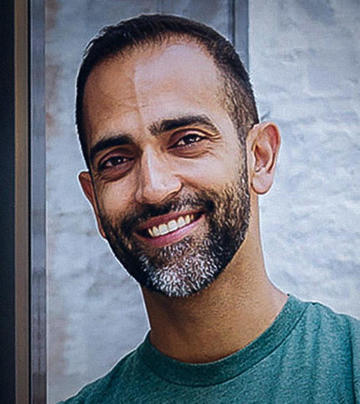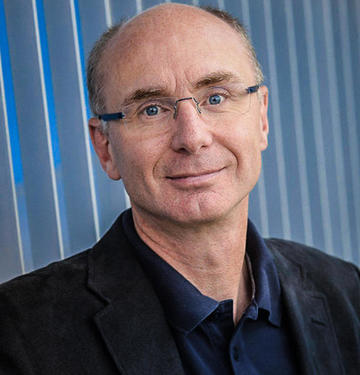(original article by ProFinance.si)
By uniting and connecting recognizable international investors, established companies, startups and scaleups from Central and Eastern Europe, the epicenter of the regional startup ecosystem is being created in Slovenia.
More than half of city governments in this year’s ESI ThoughtLab study express the belief that a coronavirus pandemic will permanently change the way we live and work in cities. As many as two-thirds of cities will consider a strategy for further urban planning, and just over half are considering ambitious changes to urban mobility. No less than two-thirds of cities consider the strategy for the development of smart cities as key to their further development.
Thus, the pandemic is accelerating the process of digitization and sustainable urban development, with the digitalization of smart communities based on the use of new Internet of Things (IoT) and 5G technologies, and sustainable development following the United Nations (UN) strategy and Sustainable Development Goals.
Digitalization Must Be Sustainable
Most of the twenty major cities worldwide highlighted in the study are pursuing all 17 UN sustainable development goals. However, these cities are not only global leaders in sustainability, but also in digitalization. On average, these leading cities have implemented 14 different smart city projects and have more advanced infrastructure, more efficient public transport, more green spaces, better access to healthcare, and most importantly, they enable significantly higher levels of digital connectivity.
So-called 4.0 cities are therefore not only smart, but also sustainable. Perhaps most importantly for the further development of smart cities around the world, 4.0 cities generate higher returns on investment in new technologies, with profitable investments in digital infrastructure, green mobility and transport, public safety, health, education, and water and energy resources. These are all characteristics of 4.0 cities, which include Athens, Aarhus, Baltimore, Barcelona, Berlin, Birmingham, Boston, Copenhagen, Helsinki, London, Los Angeles, Madrid, Moscow, New York, Orlando, Paris, Philadelphia, Singapore, Tallinn and Vienna.

“A technological Smart City is not really “Smart” if it does not also take care of its sustainability” says Lorenzo Madrid, internationally renowned expert and President of Smart City Business Institute America, who will be one of the keynote speakers at the Podim DX 2021 event.
Lorenzo Madrid, vice president of Strategic Partnerships at Wellness Tech Group, a Spanish company specialized in Smart City technologies and author of the book “Smart City 3.0 – A new way of Governing”, will share his experience of the latest smart solutions projects in Istanbul, Cape Town and Ho Chi Minh City at the Podim DX event.
Most Money Is Spent on Investments in New Cloud Storage Technologies, Less So in Artificial Intelligence
So far, there are only twenty sample smart cities. But this does not mean that other cities are not following the global trends of digitalization and sustainable development. The ESI ThoughtLab study shows that among the 167 representatives of various city governments surveyed, the most money is being spent on investments in new cloud storage technologies, mobile technologies, the Internet of Things, biometrics and artificial intelligence. This is not to say that digitalization is at the forefront of the development of smart cities, because the goal of the smart communities of the future is first and foremost a better quality of life for residents and citizens, and technologies are merely a tool for achieving these qualitative goals. Smart cities offer a stronger focus on aspects that are improving greatly in most cities around the world from the ESI ThoughtLab study: Poverty reduction and better employment and education opportunities.
Partnerships Are Needed in Order to Seize Opportunities

Amrit Dhir has a decade of experience leading the development of new businesses and operations of some of the most innovative products and revolutionary technologies of Alphabet: Google Research and AI projects; X (formerly Google X); Verily (formerly Google Life Sciences); and Google Arts & Culture.
However, this requires a partnership between all key stakeholders. The partnership between city authorities, private companies and the public represents an important consensus without which the development of smart cities will not reach its potential. “Don’t do anything yourself, network,” cautions Amrit Dhir, who has a decade of experience leading the business development of Alphabet’s (Google) most innovative products and revolutionary technologies and is now a director of Business Development at Sidewalk Labs. Amrit Dhir will share his unique perspective on the opportunities of digitizing smart cities at Podim DX 2021.
With all this said, the question is how far is Slovenia in the development of smart cities? How far are we in achieving the sustainability criteria, and most importantly, how can we move faster?
In Slovenia, (Internet) Things Are Driven by Heliot
At the end of last year, we got the first base station for the Internet of Things (IoT) in Slovenia. Namely, Heliot Europe came to Slovenia – the operator of the largest European network Sigfox 0G IoT, which by the end of spring will build a network of 50 stations covering about 65 percent of the inhabited area of Slovenia. The base stations use the Sigfox 0G Low Power Wide Area Network (LPWAN) energy-saving technology, which is cost-effective, virtually maintenance-free and better suited for most IoT applications than the current 5G technology. In addition to the implementation of smart city solutions, the Heliot Europe 0G network also supports the development of Industry 4.0 and the associated higher efficiency of available resources.
 “This year, we are focusing our solutions on optimizing routes in logistics, including postal services, insurance, the automotive and pharmaceutical industries, and construction. As part of the EU strategy, we will support sustainable development processes through the digital transformation of cities into smart cities,” Blaž Golob explains, the CEO of Heliot Slovenia.
“This year, we are focusing our solutions on optimizing routes in logistics, including postal services, insurance, the automotive and pharmaceutical industries, and construction. As part of the EU strategy, we will support sustainable development processes through the digital transformation of cities into smart cities,” Blaž Golob explains, the CEO of Heliot Slovenia.
Helmut Wöllik, professor of engineering and information technology and head of the ROADMAP-5G research group, has carried out numerous projects in the field of ad hoc network technology infrastructures (5G & Smart City, 5G Playground Carinthia, development of timing and scoring sports software).
 However, it appears that most IoT applications for use in smart cities will run on fifth generation (5G) mobile technology. In recent years, Austrian Carinthia has become an innovative high-tech hub, where a 5G test lab for research and development of 5G applications, products, processes and applications has been established at Lakeside Science & Technology Park in Klagenfurt. Podim DX 2021 will host Helmut Wöllik, project lead of Playground Carinthia and head of the ROADMAP-5G research group, which researches 5G use cases, especially in connection with smart cities and Mobile Edge services.
However, it appears that most IoT applications for use in smart cities will run on fifth generation (5G) mobile technology. In recent years, Austrian Carinthia has become an innovative high-tech hub, where a 5G test lab for research and development of 5G applications, products, processes and applications has been established at Lakeside Science & Technology Park in Klagenfurt. Podim DX 2021 will host Helmut Wöllik, project lead of Playground Carinthia and head of the ROADMAP-5G research group, which researches 5G use cases, especially in connection with smart cities and Mobile Edge services.
Linking Innovation to Business Opportunities, Capital and Knowledge
Podim DX 2021, the most influential startup & technology event in Central and Eastern Europe, will therefore offer a unique insight into linking innovation with business opportunities, capital and knowledge from May 17-19. Over the years, Podim has become a key regional learning and networking platform that creates real value by bringing together and connecting recognized international investors, established companies and startups and scaleups.
“To ensure the highest quality of learning and networking, the organizers have taken the strategic decision to allow a maximum of 1,000 participants to attend the event. This is one of the reasons why you can always approach top speakers at Podim, talk to them and spend quality time with investors, company representatives and other attendees. Podim is a window in and out of the region for effective networking, business initiation and experience sharing, ” say the organizers, who say that the essence of Podim DX is practical advice, sharing knowledge and valuable experience, as well as imparting important advice and tricks for business growth.
Opportunity to “Book” 20-minute Meetings with Representatives of Nearly 200 Startups
Podim DX offers each individual within its digital audience the opportunity of 20-minute meetings with various experts and, most importantly, representatives of nearly 200 startups developing interesting technologies. When purchasing a digital ticket, Podim web attendees will receive access to a digital catalogue of all conference startups and scaleups.
##
Content support for recipients of P2, SK75 or SI-SK financial products under the "de minimis" scheme is co-financed from the Slovene Enterprise Fund and the European Union from the European Regional Development Fund. This is implemented on the basis of the Content Support for Funds Recipients (SMEs) Programme in the 2018-2023 period, under the Operational Programme for the Implementation of the European Cohesion Policy 2014-2020.









